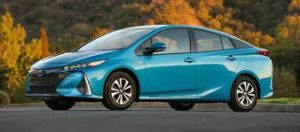 Toyota Motor Corp. is readying electric motors that include as much as 50 percent less in rare earths amid concern of a supply crunch as automakers race to expand their electric-vehicle lineups.
Toyota Motor Corp. is readying electric motors that include as much as 50 percent less in rare earths amid concern of a supply crunch as automakers race to expand their electric-vehicle lineups.
Asia’s biggest carmaker has developed a magnet for the motors that as much as halves the use of a rare earth called neodymium and eliminates the use of others called terbium and dysprosium, the company said at a briefing in Tokyo on Tuesday. In their place, Toyota will use the rare earths lanthanum and cerium, which cost 20 times less than neodymium. The carmaker plans to ask suppliers to manufacture the magnets.
Toyota sees demand for neodymium exceeding supply from 2025, by which time the carmaker intends to be offering an electrified version of every vehicle in its lineup. By 2030, Toyota aims to sell 5.5 million electrified vehicles — including 1 million wholly battery- or hydrogen-powered cars — accounting for half of its projected deliveries. Motors with the magnets can be used in any electrified powertrain, the
Rare earths along with metals like lithium and cobalt are seeing soaring demand from a growing electric vehicle market, propelled mainly by increasingly stringent emissions restrictions worldwide. China, which is home to the world’s biggest auto market and the leader in electric vehicle sales, supplies more than 80 percent of rare earths globally. The potential for volatility in the market for the minerals was exposed last year when a clampdown on illegal Chinese miners caused neodymium prices to surge by almost a third in one month.
